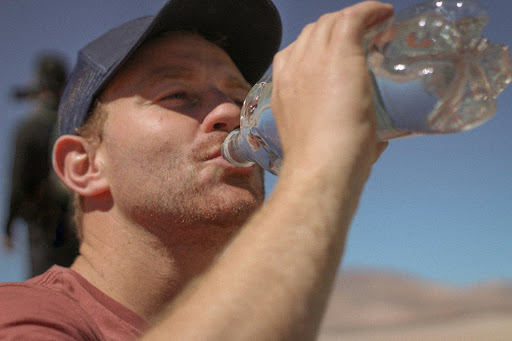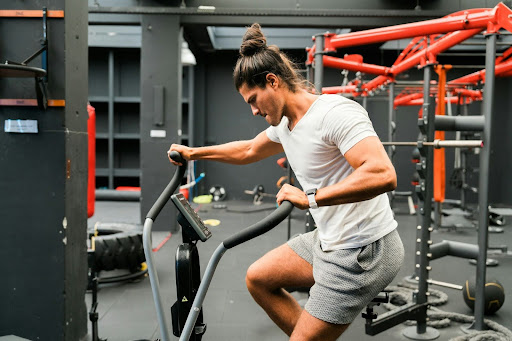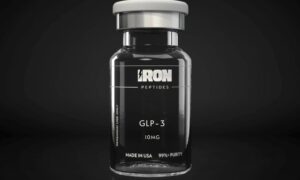When it comes to nutrition, most discussions revolve around weight loss, counting calories, cutting carbs, or following the latest fad diet. But what if your goal is not just to shed pounds but to perform at your best?
Whether you are an athlete, a busy professional, or someone who wants more energy and focus, eating for performance is a game-changer. This approach prioritizes fueling your body for optimal function rather than simply restricting food for weight management.
Performance Nutrition vs. Weight Loss Nutrition
Weight loss nutrition often focuses on creating a calorie deficit, which can sometimes leave you feeling fatigued or sluggish. Performance nutrition, on the other hand, is about providing your body with the right nutrients to sustain energy, enhance recovery, and support mental clarity. Instead of cutting calories, you will focus on optimizing them by choosing foods that enhance endurance, strength, and cognitive function.
The Role of Macronutrients in Performance
Macronutrients, protein, carbohydrates, and fats are the foundation of performance nutrition. Each plays a unique role in how your body functions.
Protein is essential for muscle repair and growth. Unlike weight loss diets that may restrict protein to cut calories, performance nutrition emphasizes adequate protein intake to support recovery. Aim for high quality sources like lean meats, fish, eggs, and plant based options such as lentils and quinoa.
Carbohydrates are your body’s primary energy source, especially important for high-intensity activities. Rather than avoiding carbs, focus on complex sources like whole grains, sweet potatoes, and fruits, which provide sustained energy without blood sugar crashes.
Fats are crucial for hormone production and long term energy. Healthy fats from avocados, nuts, seeds, and olive oil support brain function and endurance, making them a key part of a performance focused diet.
The Importance of Micronutrients for Energy and Recovery
Vitamins and minerals may not provide calories, but they play a critical role in energy production and muscle function. For example, magnesium helps with muscle relaxation, iron supports oxygen transport in the blood, and B vitamins aid in converting food into energy. A diet rich in colorful vegetables, nuts, seeds, and lean proteins ensures you get these essential micronutrients.
Do Not Forget Hydration
Dehydration can significantly impair physical and mental performance. Even mild dehydration leads to fatigue, reduced coordination, and slower reaction times.

Instead of waiting until you are thirsty, drink water consistently throughout the day. For intense workouts, consider electrolyte-rich beverages to replenish lost minerals.
Meal Timing for Sustained Energy
When you eat can be just as important as what you eat. Skipping meals or going too long without food can lead to energy crashes. For steady performance, aim for balanced meals every 3 to 4 hours.
Pre-workout nutrition should include easily digestible carbs and a moderate amount of protein, while post-workout meals should focus on recovery with protein and replenishing carbs.
The Truth About Supplements for Performance
While whole foods should always be the priority, some supplements can enhance performance. Creatine, for example, supports strength and power output, while caffeine can improve focus and endurance.
However, supplements should complement, not replace, a well-rounded diet. Always consult a healthcare professional before adding new supplements to your routine.
Listening to Your Body’s Signals
Unlike rigid weight loss diets, performance nutrition encourages tuning into your body’s hunger and energy cues. If you are training harder, you may need more food, and that is okay.

Learning to distinguish between true hunger and emotional eating helps you fuel appropriately for your activity level.
Long Term Sustainability Over Quick Fixes
Performance nutrition is not about extreme restrictions or short term results. It is a sustainable way of eating that supports your body’s needs over time. By focusing on nutrient dense foods, proper hydration, and smart meal timing, you will not only perform better but also feel stronger and more energized every day.
Final Thoughts
If there is one thing that every personal trainer recommends, it is eating for performance. which is about nourishing your body so it can do more, not just weigh less. When you shift your focus from restriction to support, you’ll feel stronger, more energized, and more in control of your progress.
Start by making small, intentional changes prioritizing protein, choosing quality carbs, staying hydrated, and listening to your body. Over time, you will notice improvements in strength, endurance, and overall well being that go far beyond what any weight loss diet could offer.



































